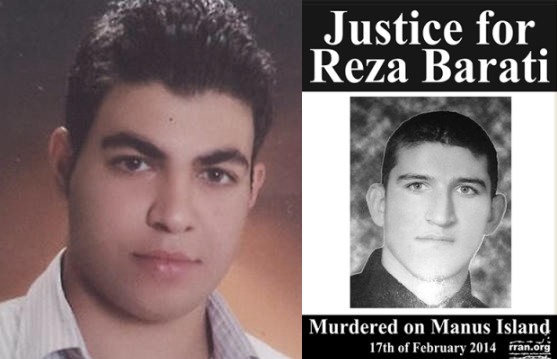
PORT MORESBY (Sydney Morning Herald / Pacific Media Watch / SBS News): The Papua New Guinea Supreme Court will decide whether a judicial inquiry into living conditions and human rights on Manus Island may continue.
The court will begin its deliberations next month, The Sydney Morning Herald reported.
The inquiry began in March 2014 but was put on hold two months later, following a legal challenge from the PNG government.
Papua New Guinean judge David Cannings had asked Cairns doctor Dr Paul Crouch-Chivers to investigate the detention centre, following the February 2014 incident when Papua New Guinean police and Group Four (G4S) security guards opened fire in the deportation centre, killing Iranian architect and economic migrant Reza Barati, and injuring 77 others.
Judge Cannings had also ordered that the media be allowed into the deportation centre to interview detainees. Journalists had previously been barred from the centre.
But the PNG government asked that Judge Cannings recuse himself on the grounds that he was biased as he had previously adjudicated another court challenge to the Australian deportation centre.
The Supreme Court must now consider whether to uphold the legal challenge or not.
Denied medical attention
Since the February 2014 incident, another asylum seeker, 24-year-old Hamid Kehazaei died of septicaemia three weeks after cutting his foot in the centre and being denied medical attention.
Last year, New Matilda reported that conditions on Manus Island were "horrific", with rape, weapon smuggling, many incidents of self-harm and assaults taking place regularly in the detention centre. Toilets were reported to be overflowing and there was not enough drinking water for those being detained.
Human Rights Law Centre director of legal advocacy Daniel Webb told SBS News that the inquiry was needed urgently because of the two deaths and because the centre was a failure.
"In 22 months...not one single asylum seeker has been processed and resettled and there are obviously serious questions about whether that complies with Papua New Guinea human rights laws," said Webb.
The most important outcome of the inquiry is that some much needed legal scrutiny be brought to bear on the way that Australia is treating these people in their territory in another nation," Webb added.
This work is licensed under a Creative Commons Attribution-NonCommercial 3.0 New Zealand Licence.




